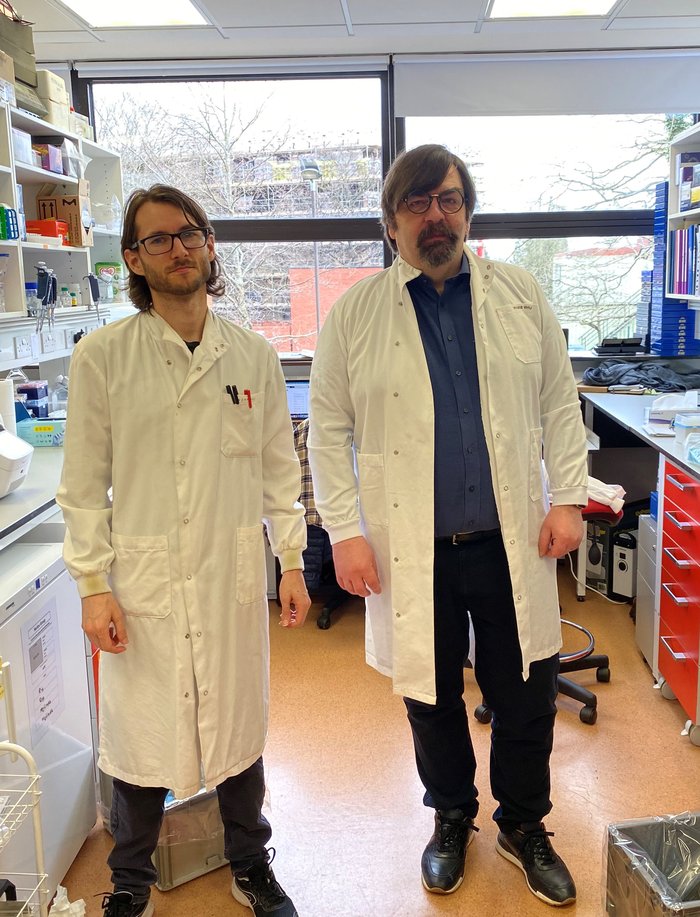Developing new drug treatments for mastocytosis
Mastocytosis is a blood disorder where the body makes too many mast cells. Mast cells are an important part of our body’s immune system but having too many of these cells causes us harm. Professor Nerlov wants to develop a new drug that can effectively target and treat mastocytosis.

Professor Claus Nerlov (right) and his post-doc Student Alexandre (left) who is working with him on the project
The challenge
Mastocytosis is a rare blood disorder where the body makes too many mast cells. Mast cells are produced in the bone marrow, the spongy material inside our bones. They are an important part of our body’s immune system and help the body fight infections. People with mastocytosis produce too many mast cells. As a result, these mast cells build up in areas of the body such as the liver, gut and bone marrow, releasing molecules that interfere with normal blood cell production. Currently, there are very few treatment options available for people with the disease. In many cases, these treatments are not effective in the long term and people find their symptoms get worse or the disease comes back.
The project
In this Omaze x Blood Cancer UK funded grant, Professor Nerlov wants to develop a new drug for mastocytosis. Working with his team he has identified a specific protein called LMO4 that has an important role in the development of these mast cells. His lab team at University of Oxford plan to work alongside researchers from the Mancini and Spencer labs at the University of Sussex. The team will identify and develop drugs that target the LMO4 protein to limit the development of these mast cells.
The future
The hope is that this research will help in the development of a new effective treatment for people with mastocytosis. In the future it’s hoped these drugs will be available as a treatment option to people with disease, offering new hope to people affected by this blood cancer.
Funding
This project is part of the Omaze X Blood Cancer UK Fund.

